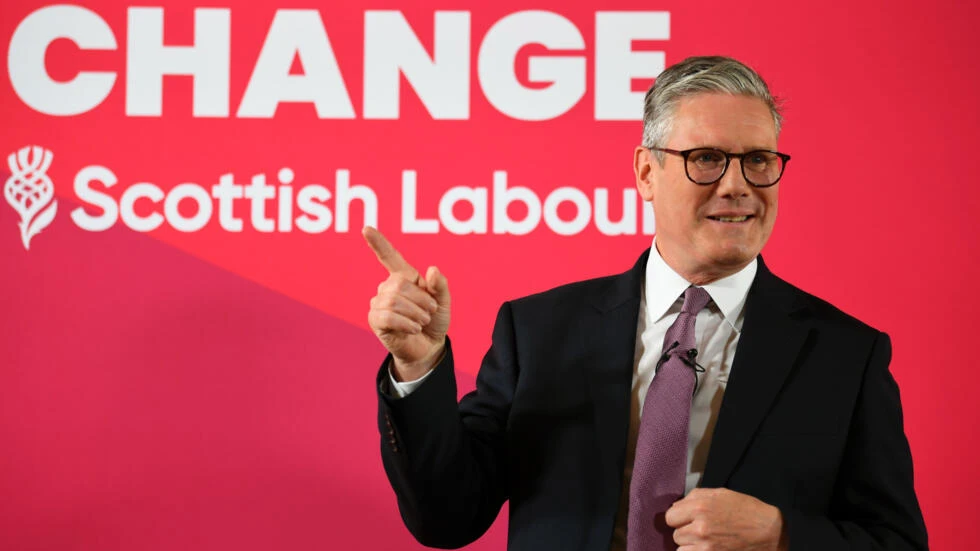UK Labour seeks to reassure voters on defence

Stay tuned with 24 News HD Android App

UK opposition leader Keir Starmer pledged on Monday to protect Britain's nuclear arsenal, seeking to show voters that his Labour party can be trusted on national security at next month's general election.
Defence -- traditionally a strength of the ruling Conservatives and seen as a weakness of Starmer's predecessor as Labour leader, the Socialist Jeremy Corbyn -- is a key battleground issue going into the nationwide vote on July 4.
Starmer said Labour was "the party of national security", insisting that the centre-left group has changed since Corbyn lost by a landslide to the Tories under Boris Johnson at the last vote in 2019.
The veteran left-winger was seen by critics as weak on defence because of his support for nuclear disarmament, ambivalence towards NATO and failure to categorically condemn Russia over high-profile poisonings on British soil.
But Labour under the more centrist Starmer has committed to what it calls a "nuclear deterrent triple lock" that involves the construction of four new nuclear submarines.
The other two elements are maintaining Britain's continuous at-sea deterrent and the delivery of all future upgrades needed for submarines to patrol waters effectively.
Labour, well ahead in opinion polls for the last 18 months, also wants to increase defence spending to 2.5 percent of gross domestic product (GDP), up from 2.3 percent currently.
"Let me be unequivocal," Starmer said during a speech in the north of England, pledging "a stronger, safer, more secure Britain with Labour".
"This Labour Party is totally committed to the security of our nation, to our armed forces, and, importantly, to our nuclear deterrent."
Labour has so far declined to set a timeline on when it hopes to meet the 2.5-percent target, saying only that it would raise spending when economic conditions allow.
The Conservatives, in power since 2010, have said they would meet the 2.5-percent defence spending target by 2030.
Prime Minister Rishi Sunak put Britain's safety on the ballot paper last month when he claimed, shortly before announcing the date of the election, that Britain would be less safe under a Labour government.
The Conservatives use as an argument the fact that several members of Starmer's top team have in the past voted against renewing Britain's nuclear deterrent, known as Trident.
One of Starmer's first tasks if Labour is elected will be to attend NATO's 75th anniversary summit in Washington on July 9-11.
Farage
"Only the Conservatives have a clear plan to deliver the bold action needed to keep Britain secure in a more uncertain world," said Defence Secretary Grant Shapps, describing Starmer's speech as "empty".
Political scientist James Strong said Starmer was adopting a "safety first" approach to global issues such as nuclear weapons, NATO and the war in Ukraine by toeing a similar line to the government's.
"He has actively avoided staking out a distinctive position on foreign affairs, in part as way of signalling that he is not Jeremy Corbyn," Strong, from Queen Mary University of London, told AFP.
"That makes sense, since most voters won't base their vote on foreign policy issues, and on these particular higher salience issues, continuity is broadly what they want."
On Monday, the Tories sought to shore up their right-wing support base by pledging that they would amend Britain's equality law if they win a fifth consecutive term.
The reform would mean biological sex alone would determine who could use single-sex spaces, Equalities Minister Kemi Badenoch said.
Labour has accused the ruling party of stoking a culture war.
Elsewhere on Monday, arch-Eurosceptic Nigel Farage said he would make "an emergency general election announcement" later in the day, fuelling speculation he would stand for the fringe Reform UK party, after earlier saying he would not.

